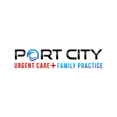
Accepting new patients, most insurances, and private pay
Family Practice and Urgent Care
Appointments or walk-ins NEW EXTENDED HOURS EFFECTIVE 6/1/2025 Monday - Friday 9AM-8PM Saturday 9AM-2PM Sunday 12PM-5PM Xray on site